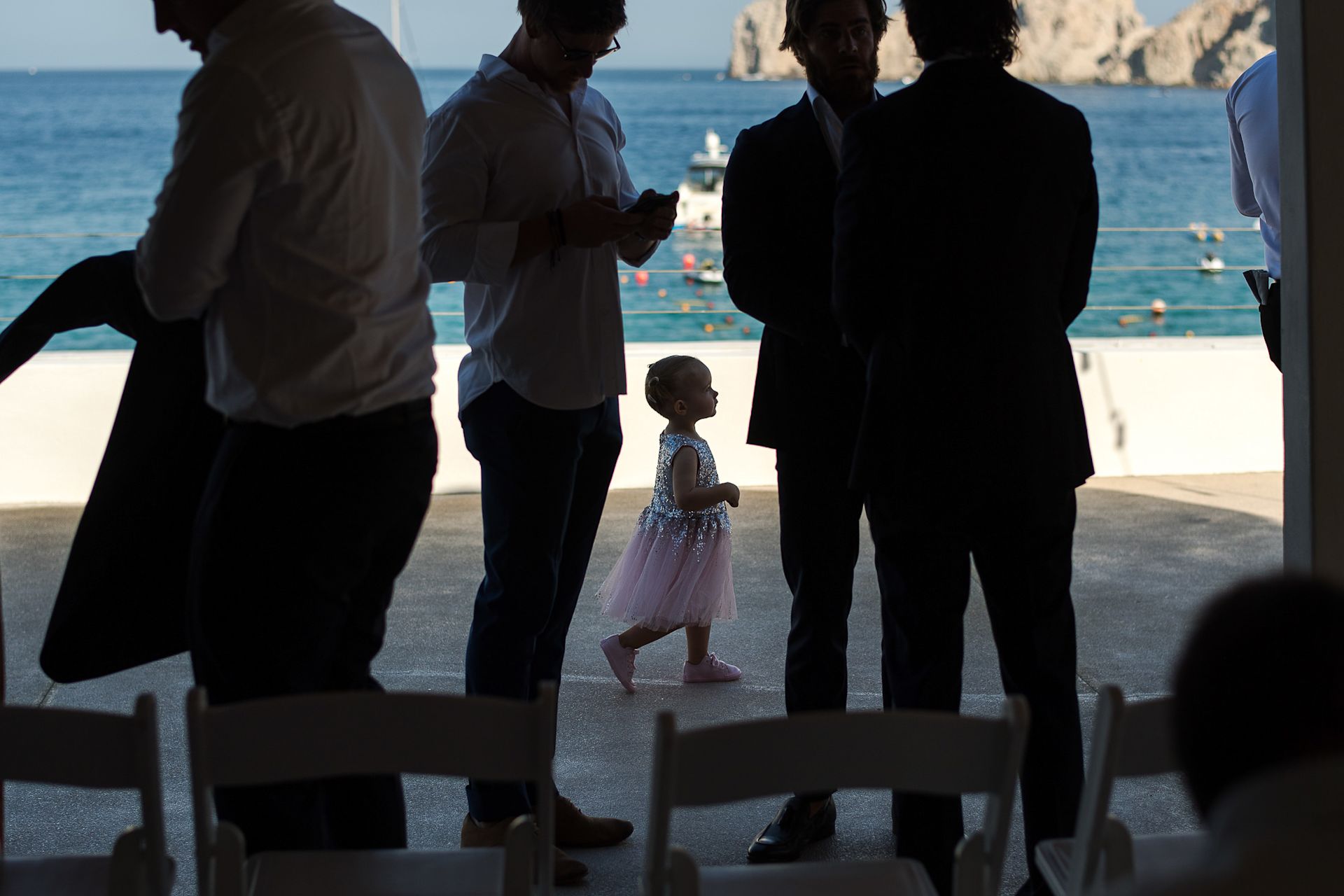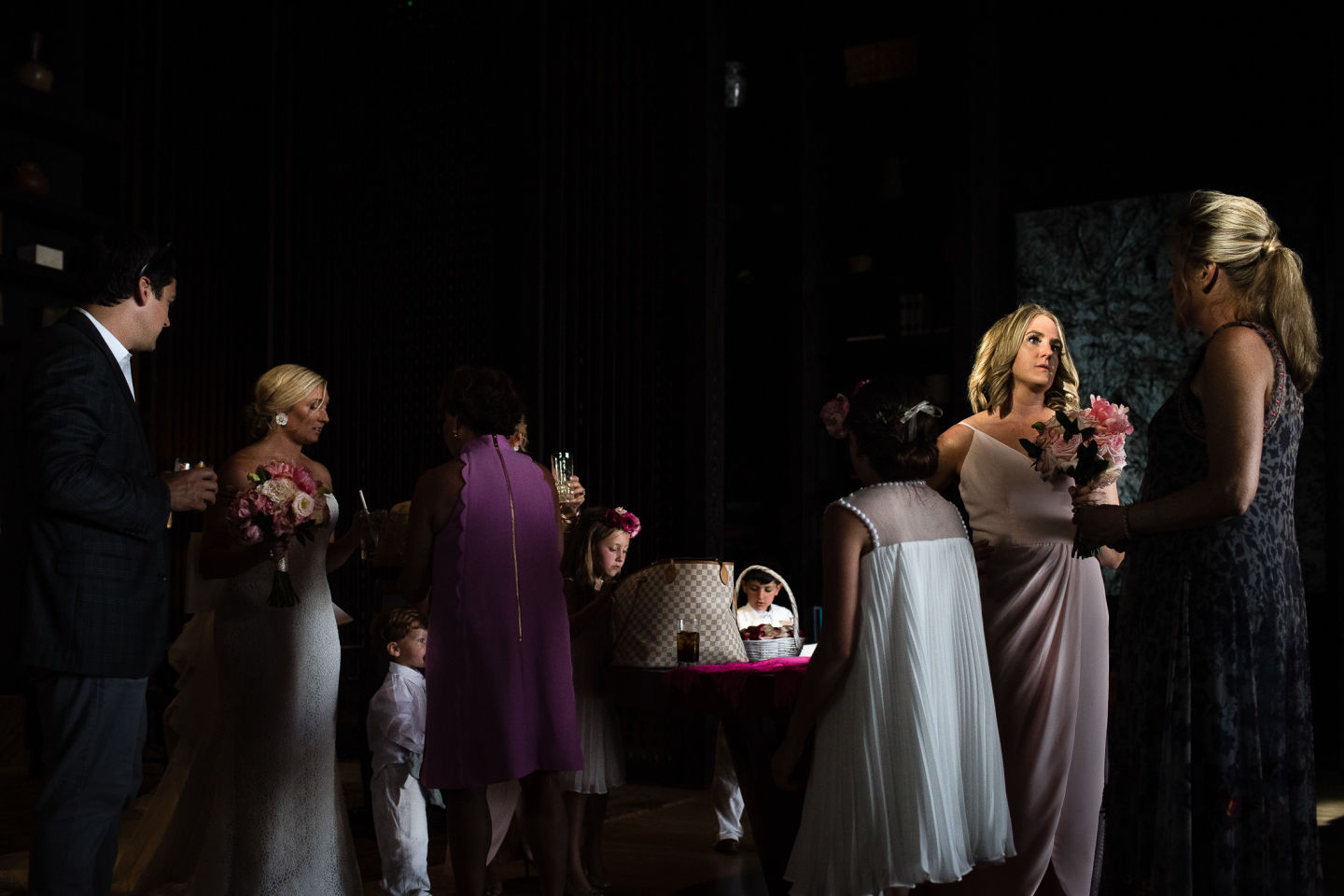I am an Honest Visual Storyteller,
and my style is firmly moved by the ethics and techniques of photojournalism, documentary, and yes, street photography. There are many differences between the three, and for some people, the variations can be slight. But for me, they all have something in common: they are unscripted. The photographer can't interfere with the scene, because otherwise, it doesn't make sense, it won't be real Street Photography.
When I'm shooting weddings, I also do it without interfering or altering the scenes: 100% unscripted
And starting from this, I always try to add information or just an extra graphic element to the photograph, to make it more powerful, efficient, and with significant impact. That's why I often apply my Street photography style to weddings (what I call Wedding Street Photography). I think it's a fabulous way to tell the honest and real story of marriage while including as much context and information as possible: playing with layers, complex compositions, and great moments. If you can combine all of this together, you can probably have a killer combination, a picture with a story, but a huge impact as well. A photograph with something peculiar and unique to say. Not just a candid photo of a moment.







